I’ve been finding that the diverse language already available to describe one’s gender identity still doesn’t quite fit with how I perceive and wish to express myself. Even the very concept of gender identity is a bit uncomfortable for me because gender is a power hierarchy. It places men above women, and people who successfully conform to the gender binary above those who cannot or will not do so. I can acknowledge where I fall in the hierarchy – I believe doing so is a first step toward changing the system to be more egalitarian – but I feel disinclined to identify with “my place” in it. How can I do that, when I believe it shouldn’t even exist? (I suppose the same differentiation can be applied to other social/power hierarchies such as class and race.)
The term “gender identity” also assumes that it is possible for one to have an innate sense of oneself that is not shaped by outside forces (i.e. culture). We identify with what we know, and what we know is our culture. Ozy Frantz argues that many people simply identify the way they are raised, allowing their self-perception to be shaped by culture and never questioning it.
I would argue that even someone who does not identify the way hir culture dictates ze should builds some part of hir identity upon not conforming. If I say I am queer or gender-fluid, I am saying that I do not fit into the gender binary – a concept of myself I would not even need to have if it were not for the influence of culture: people treating and expecting me to behave a certain way based on their perception of my biological sex. Someone who is transgendered and/or transsexual might not identify as trans (e.g. trans-woman), but hir self-perception is shaped by cultural norms for the gender/sex ze identifies as (e.g. woman).
Speaking of the term, “woman,” what does it refer to, anyway? Is a woman:
- a person who was born with ovaries, fallopian tubes, a uterus, a vagina, labia, a clitoris, and mammary glands capable of developing and lactating if/when she becomes pregnant?
- a person who menstruates?
- a person who perceives her body as female and believes it should have some or all of the above parts, whether she was born with them or not?
- a person who values and actively conforms to the norms associated with females in her culture?
- a person whom others perceive as female, treat accordingly, and expect to behave a certain way?
- a person who is or wants to become a mother?
- a person who falls lower on the gender hierarchy (than a man)?
Of course, I’ve had to rely on other culturally-laden terms in order to compose the above definitions. The term “female” is part of another cultural binary – sex – which assumes human bodies generally take one of two forms, complete with specific anatomical features, hormones, chromosomes, etc. The term “mother” is also complex and becomes even more so when one considers reproductive technologies. 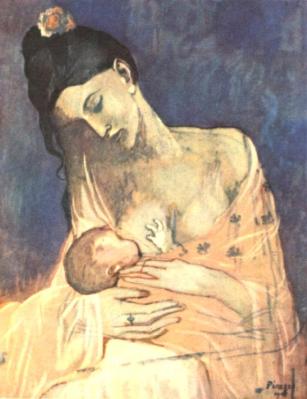 Is a mother:
Is a mother:
- the person whose egg is fertilized to create a new human?
- the person who becomes pregnant with and gives birth to this new human?
- the person who provides and cares for this new human?
Of course, for both “woman” and “mother,” the answer can be any or all of the above (or something else); these definitions need not be exclusive. We don’t even need to agree on which definitions to include! That’s actually the point I’m trying to make here: these terms are so complex, they can be applied to a wide range of individuals who are more different from each other than they are similar. For many if not most cases, only some of the definitions will be accurate.
A similar analysis can be applied to the terms “man” and “father” as well. Conflicting concepts of masculinity add to the complexity of such an analysis.
Creating A New Vocabulary
I have come to the conclusion that the best way for me to be able to explain my understanding of myself (as an embodied individual whose body has cultural meaning and socioeconomic repercussions) is to make up new words and define them precisely the way I want to.
Noun or Adjective?
One thing I find interesting about the terms above – “woman,” “mother,” “man,” and “father” – is that they are all nouns. Terms used to classify people along other aspects of identity such as race, class, age, ethnicity, sexual orientation, ability/disability, education level, etc. are often adjectives – or, one has the option of using either an adjective or a noun. When it comes to gender, the terms are nouns – except that “woman” is sometimes used as an adjective, e.g. “woman president;” you would never hear of someone being called a “man president.”
Using a noun to classify someone seems to imply that that dimension of hir self is more important, innate, or central than the other dimensions. Your race, age, etc. might describe you, but your gender defines you. Frankly, I see no reason why gender should be any more important than any other aspect of someone’s identity, or where ze falls in various socioeconomic/power hierarchies. For many people, it’s not.
My New Adjectives
-
mamuva – naturally possessing functional mammary glands, a uterus, a vagina, ovaries, etc.; may or may not menstruate (depending on age, weight, etc.)
- mamuva’id – identifies as mamuva, whether hir body conforms to the definition or not
- mamvanormal – values and actively conforms to the norms associated with being mamuva and/or mamuva’id in hir culture, including dress, mannerisms, etc.
- mamvaseen – perceived by others as mamuva; treated, addressed, described, and expected to behave according to the relevant cultural norms
-
pentestum – naturally possessing a penis, testes, scrotum, etc.
- pentestum’id – identifies as pentestum, whether hir body conforms to the definition or not
- pentumnormal – values and actively conforms to the norms associated with being pentestum and/or pentestum’id in hir culture, including dress, mannerisms, etc.
- pentumseen – perceived by others as pentestum; treated, addressed, described, and expected to behave according to the relevant cultural norms
Describing Myself
Now that I have some new adjectives to use, I can better describe myself. I am a person who happens to be mamuva and is usually mamuva’id; I am happy with my body the way it is and take pleasure in it – both through currently-available experiences and when thinking about its potential to grow and nurture another human being. Sometimes I feel pentestum’id and wish I could (temporarily) morph my body to match. I do not consider myself to be particularly mamvanormal or pentumnormal. Perhaps I am somewhere in between, choosing which norms I’m comfortable with at a given moment and attempting to ignore the rest.
If I experience gender-related dysphoria, it is not because of my body. It is my response to being mamvaseen and particularly to the expectation that I am or should be mamvanormal. I actively reject many if not most of the norms associated with being mamuva in my culture because they would limit me to a decorative, nurturing, and supportive role in society – while also making it easier for me to fall victim to predators and to believe I deserved to be victimized. No thank you!

legs on display, unprotected, in high heels that make it difficult to run away – all part of the daily grind
I would much rather be seen as a person, an equal, someone who can do whatever ze wishes with hir life. I refuse to be placed in a subordinate position in a hierarchy that should not even exist in the first place.
Which brings us to the term “woman” one last time. I do not identify with that term as a means of describing a person physically, psychologically, or hierarchically. But I can identify with women as a political group – a group of people who have been systematically oppressed, devalued, etc. in diverse cultures for millenia. They have not been passive victims by any means – they have always worked to live the most personally-fulfilling, meaningful, and at times world-shaping lives possible within the constraints placed on them by society. And we continue to do so, building on the progress toward equality made by our mothers (and fathers), grandmothers (and grandfathers), great-grandmothers (and great-grandfathers), etc.
Moving Forward
The adjectives I created are intended to be mutually-inclusive; you can combine them with each other and with other adjectives (e.g. intersex, queer, etc.) however you see fit. That said, the list is nowhere near exhaustive. If you think of an adjective that should be on the list but isn’t, please let me know in comments!
How would you use these terms and others to describe yourself? I’d love to read about it in comments. Or, if you’re inspired to write your own post about it, please link back to this one. The pingback will allow me and other readers to go read and comment on your post. I hope we can spark a conversation about this topic that can go far beyond my blog.

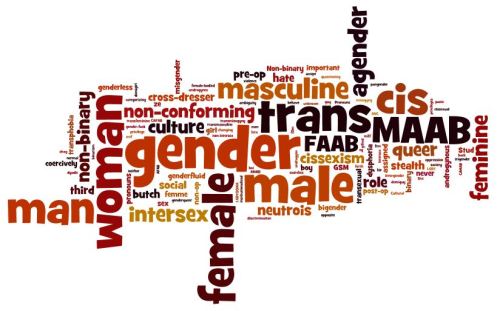
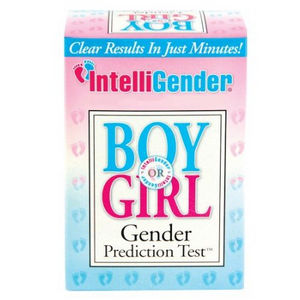
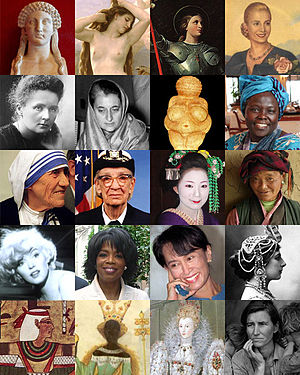
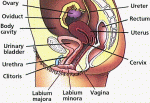

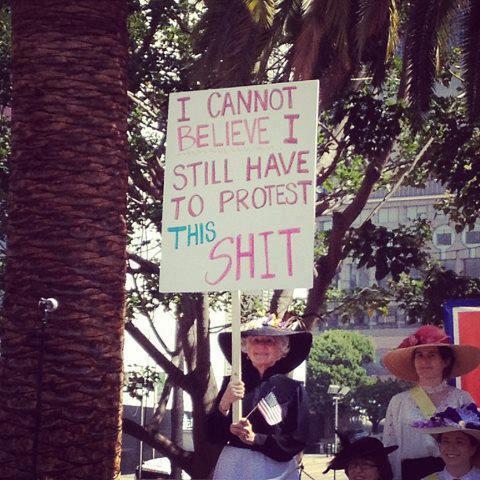
I like that you took it upon yourself to create a new list of terms, and I appreciate your explanation of why you don’t wish to identify with the gender binary because it is hierarchical. I agree that that is unfair. I am wondering though what is wrong with taking a “decorative, nurturing, and supportive role in society”? Of course, if a mamuva does not wish to take such a role, they should have the freedom to seek out a different role, and it is wonderful that feminists have and continue to work toward making that an acceptable and achievable option. Some feminists do so by working to prove that mamuva are just as capable as pentesum of taking on traditionally pentesum-only roles. Others abandon the idea of gender roles altogether.
Both of these actions, in my opinion, are awesome and helpful, but I think that if we are to rid ourselves of this idea of gender hierarchy, we need to work to also rid ourselves of the stigma associated with traditionally mamuva roles. We need to convince society that it’s ok to be supportive and nurturing, to be emotional and compassionate, to care about aesthetics, to be intuitive, whether you are mamuva or pentesum or anything in between, because it’s important to have a diverse population and all roles and qualities are equally valuable. If you want to stay at home and cook and clean the house and care for your children, that is ok and valuable and wonderful!
This is how I interpret feminism, the idea that all qualities and roles are equally valuable in society, and do not necessarily need to correspond to specific genders (if you even identify with any particular gender at all). I am behind choice feminism 100%. I guess I sometimes feel wary about calling myself a feminist though because a lot of feminists scoff at choice feminism, and believe that to be a feminist you must abandon gender roles entirely or else imitate traditional pentesum qualities and roles, whether or not you even want to or that matches your interests and skillsets. As much as I support equality for all people, regardless of their bodies or how they identify, I cannot associate myself with feminists like this, so I tend not to use the word feminist to refer to myself.
LikeLike
I agree, a significant underlying problem is that so-called “feminine” characteristics, roles, perspectives, etc. are undervalued. That’s why I call myself a feminist – I support valuing these things as necessary components of being a healthy person (regardless of sex/gender) and having a healthy society. I don’t think anyone should be limited to (or kept from) them, especially not on the basis of being born with a certain anatomy. So I guess I’m also a choice feminist, at least to a degree. I want to learn more about choice feminism ’cause the term is kinda new to me.
I also take serious issues with gender roles. If someone wants to take on certain roles in the family / society that’s one thing. My issue is with raising someone for a particular role from the moment they are born and expecting them to conform to it no matter what. I don’t think it would be necessary at all if our society weren’t so heavily based on power and privilege being determined by sexual anatomy, and on people with mamuva anatomy basically existing to give those with pentestum anatomy sexual pleasure and babies. Let go of those two things and it doesn’t really matter who’s attracted to whom, who wears what, who does and/or is interested in what, etc. – well, based on sexual anatomy, anyway.
LikeLike